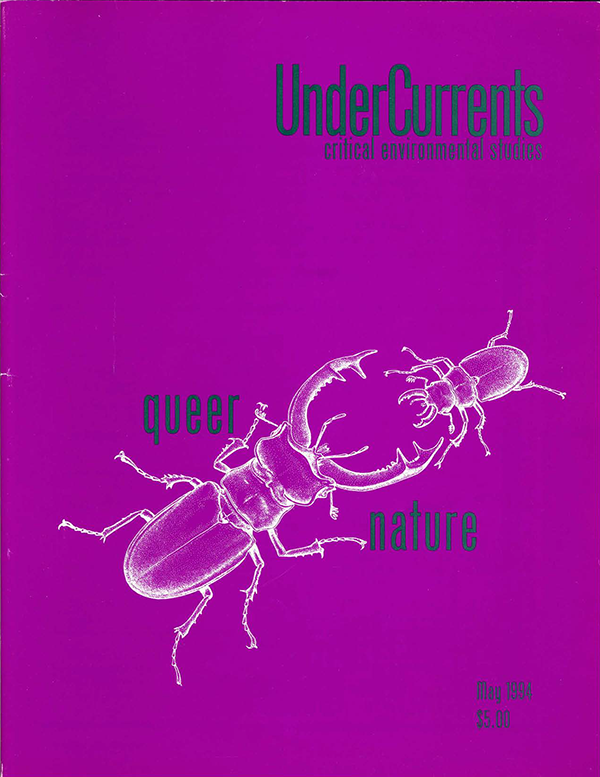Sex, Earth, & Death in Gay Theology
DOI:
https://doi.org/10.25071/2292-4736/37699Abstract
Because I am a theologian whose ideas have been fundamentally shaped by the lived, sexual experience of gay men, both my understanding of what justice means and my perspective on ecology or environmental ethical theory are firmly grounded in or connected to the erotic. Both justice and ecology are relational matters, clarified by how we come to understand our most intimate (and usually also sexual) human relationships. More specifically, as I have internalized the work of Carter Hevward and Jim Nelson in my own theology, 1 I have come to affirm with them that our fundamental need for connectedness, love, and self-affirming acceptance--our erotic drive toward connectedness with all things--undergirds our quest for mutuality and, through the realization of that quest, our efforts to establish justice in all relationships, not just our sexually expressed ones. In other words, our sexuality is not so much about where, how, or with whom we put our genitals, but is rather something that permeates our lives and that both urges us toward and sustains our relationships--even those that are not genitally consummated ones. As such, our sexuality enables--nav, compels--liberational, justice-seeking activity in the world.2
Published
How to Cite
Issue
Section
License
Copyright (c) 1994 J. Michael ClarkCreators retain copyright for all writings and artwork published in UnderCurrents. New material published as of Volume 21 (2022) is available under a Creative Commons Attribution 4.0 International License (CC-BY 4.0).


